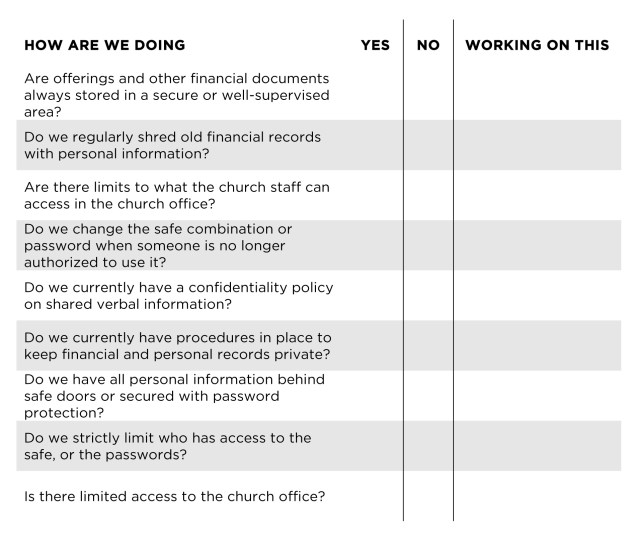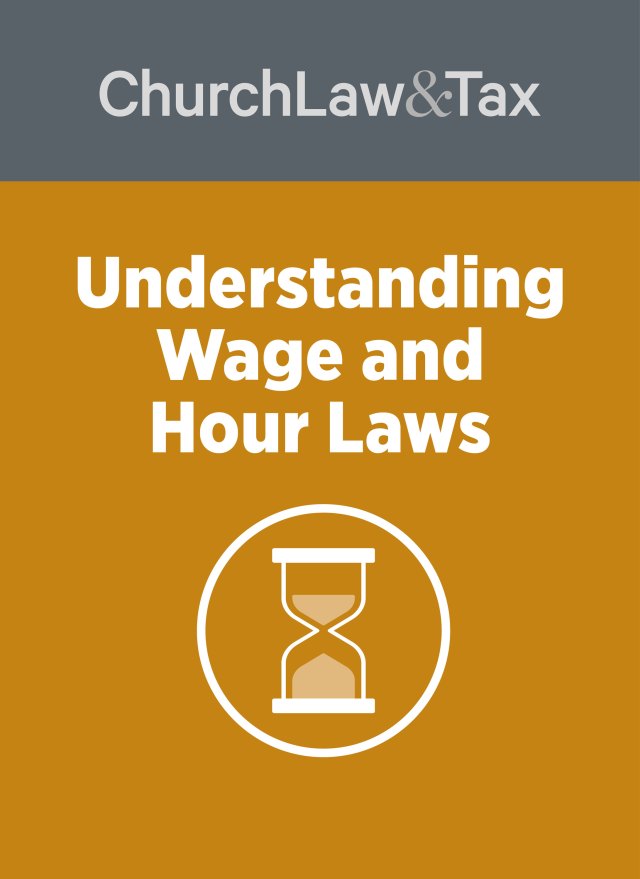Confidentiality is always a high priority among church staff and members. Use this checklist to guage how your church is doing at securing confidential information.
Download a PDF version of this checklist.
Creating a Culture of Confidentiality
Verbal sharing is sometimes overlooked in discussions about church-office confidentiality. On the phone or in person, office employees field questions about personal appointments or express concerns about church members.
Put it in writing.
One church administrator at a large Baptist church on the West Coast said that all office workers must sign a statement of confidentiality before being hired. Employees that breach this rule are dismissed. Several churches include a confidentiality clause in their employee handbooks.
Clear the area.
Information can be leaked unintentionally. If a secretary gets a phone call from a distraught person, the secretary may have to ask questions before directing the call. The secretary should make sure others are not present who might hear this confidential conversation. If potential eavesdroppers are nearby, the caller should be put on hold until the area can be cleared.
Put a lid on the log.
Many offices log in phone calls or keep copies of messages. This information could be harmful if shared with others. It might be wise to limit access to the church office, particularly after office hours.
Stress confidentiality.
People who work in the church office should be regularly reminded of their role in maintaining confidentiality. What each person should ask prior to divulging information is, “Does this person have a qualified need to know it?” If not, the information should be kept quiet.
To learn more about confidentiality, check out attorney Richard R. Hammar’s commentary on the topic in Pastor, Church & Law: Your ultimate reference guide to understanding the legal issues and responsibilities of the church in America. Full access to this guide is available to with a Church Law & Tax membership.






